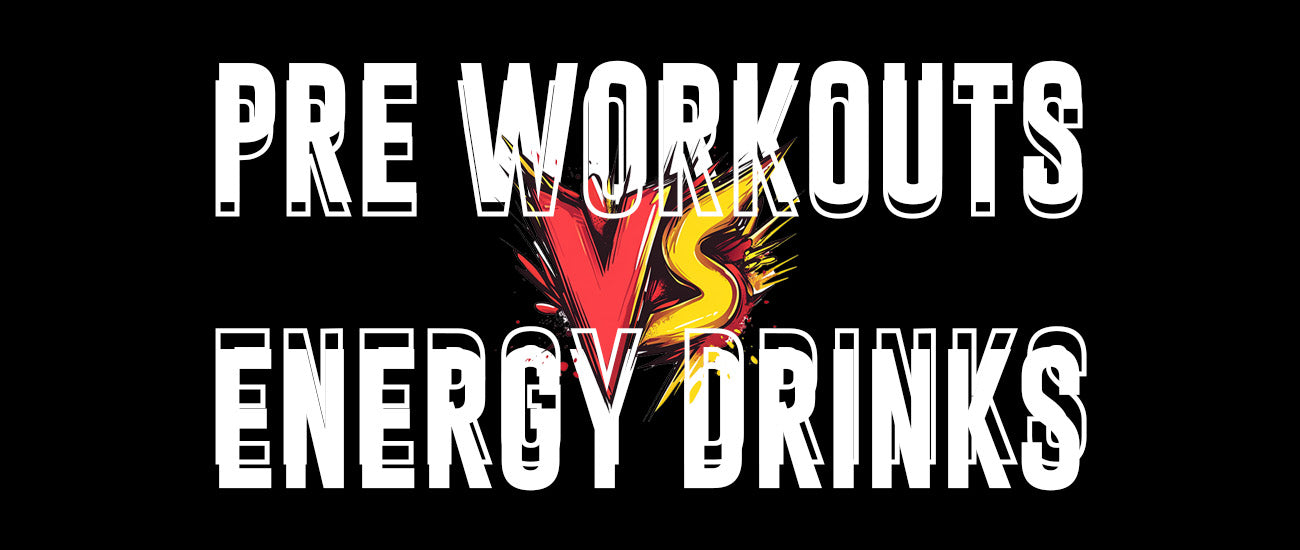For fitness and productivity, two types of supplements are often confused: pre-workout supplements and energy drinks. While both are designed to boost energy and performance, their ingredients, intended use, and long-term effects can differ significantly.
Understanding these differences is essential for making informed choices that align with your health and fitness goals.
Let’s break down what sets pre-workout supplements and energy drinks apart, and which might be right for you.
What Are Pre-Workout Supplements?
Pre-workout supplements are designed specifically for use before physical activity, typically 15–30 minutes prior to exercise. Their goal is to enhance workout performance, delay fatigue, and improve strength and endurance.
Common Ingredients:
- Caffeine: A stimulant to boost focus and energy
- Beta-Alanine: Delays muscle fatigue
- Creatine: Supports strength and muscle gain
- Citrulline Malate: Improves blood flow
- BCAAs: May reduce muscle breakdown
- Nootropics: For cognitive function and focus
Pre-workout supplements are often used by gym-goers, athletes, and anyone performing high-intensity training who wants to push their limits.
What Are Energy Drinks?
Energy drinks are beverages formulated to increase alertness and reduce fatigue, usually consumed in everyday settings such as work, study, or social events. While some are marketed toward athletes, their primary audience is much broader.
Common Ingredients:
- Caffeine Often in lower or variable doses than pre-workout supplements
- Sugar or Sweeteners
- Taurine: Supports neurological development and helps regulate water and mineral levels
- B Vitamins: Aid in energy metabolism
- Herbal Extracts: Like ginseng
Popular energy drinks offer a short-term energy boost, but they are not optimized for workout performance.
Key Differences Between Pre-Workout Supplements and Energy Drinks
1. Purpose
Pre-Workout Supplements: Specifically designed to enhance physical performance.
Energy Drink: Meant to increase general alertness and reduce mental fatigue.
2. Ingredient Profile
Pre-workout supplements usually contain performance-enhancing ingredients like beta-alanine and creatine — components rarely found in energy drinks. Meanwhile, energy drinks typically rely on sugar, caffeine, and herbal extracts for their effects.
3. Caffeine Content
Pre-workout supplements often contain 200–300 mg per serving (the equivalent of 2–3 cups of coffee).
Energy drinks typically contain 80–160 mg, though some "extra strength" versions go higher.
4. Sugar Content
Energy drinks often contain high sugar levels unless labelled sugar-free, which can lead to an energy crash.
Pre-workout supplements are usually sugar-free or very low in sugar.
5. Physical Performance Impact
Pre-workout supplements are formulated to directly improve gym performance, endurance, blood flow, and muscle pumps.
Energy drinks may give a general energy boost, but lack the specific ingredients to support physical training.
When to Use Which One
Choose a Pre-Workout Supplement If:
- You’re heading to the gym for a strength or HIIT session
- You want to increase endurance and performance
- You’re looking for focused, fitness-oriented benefits
Choose an Energy Drink If:
- You need a quick boost for work or studying
- You're not engaging in intense physical activity
- You prefer a lighter caffeine dose or a more social drink
Can You Use Them Interchangeably?
Technically, you could use either product for energy, but they’re not truly interchangeable. Using energy drinks before a workout may provide some stimulation, but you'll likely miss out on performance-enhancing benefits. Conversely, taking a pre-workout supplement just to get through a workday may result in jitters or overstimulation because your body won’t use it up effectively.
Pre-workout supplements and energy drinks serve different purposes. While both provide an energy boost, only pre-workout supplements are built to support intense physical performance, muscle endurance, and recovery. Energy drinks are better suited for general alertness and casual use.
Understanding your goals — whether it's crushing a workout or staying awake in a long meeting — will help you make the right choice.
Nutrabox Recommends:
- Ripped Pre-workout - available in 10 delicious flavours
- Ripped Pre-workout Black - available in 5 flavours (for seasoned supplement users only; not recommended for beginners)


























